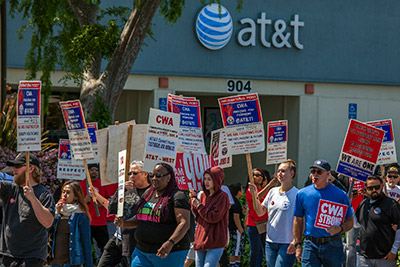Organizing the South

One of the huge problems in the American labor movement has long been the extreme difficulty of large-scaling organizing in the South. Despite the herculean efforts of some great organizers, many of whom are southern themselves, the region remains extremely anti-union as a whole. And if case you don’t think this matters, the fact that Jimmy Carter and Bill Clinton were both pretty crappy on labor issues and significantly hurt American workers in their presidencies is that both rose to power in Georgia and Arkansas without owing labor unions a single thing. And why? Because unions had never successfully organized those states. What got in the way of organizing those states? Race. White workers simply put their white identity over their class identity again and again. It’s a huge story in American history, and not just labor history. But to say that outright really means that the excuses that lots of people want to give for their position on organizing the South, the state of the Democratic Party, and American history become a lot harder to be believable. Yet the evidence is pretty overwhelming.
This does not mean that there are no unions in the South. AT&T workers in the South just had a major victory in their strike. What does it mean for the region?
“You can trace the history of labor exploitation in the Southeast from slavery, to Jim Crow, to right-to-work laws that developed after World War II and into the Cold War,” said Erik Gellman, Associate Professor of History at UNC Chapel Hill and contact for the Southern Labor Studies Association. This trajectory has “cast a really long, oppressive shadow over any kind of working class rights or dignity in those particular states.”
Yet, Gellman noted, the South has a long history of worker resistance against restrictive labor regimes. He pointed to the seven years of Reconstruction which saw large scale working class participation in post-Civil War interracial democracy, as well as Operation Dixie, the campaign by the Congress of Industrial Organizations to unionize the textile industry in the South after World War II.
CWA has Southern roots, too. The organization was first established as the National Federation of Telephone Workers at a 1938 convening in New Orleans. The group became a national union under the banner of the Communications Workers of America at a convention in Miami nine years later.
“What’s exciting about the contemporary South and the labor movement is you see working class people coming together at a grassroots level,” Gellman said. He explained that historians like Robert Korstad have described this sort of activism in the past using the term “Civil Rights Unionism.”
It is “more than just bread and butter contracts, arbitration, wages; it’s a struggle for dignity, it’s a struggle for rights in the workplace,” Gellman went on. “I think this CWA strike of AT&T represents that.”
Gellman noted, too, that many larger strikes now are among workerswhose labor cannot easily be outsourced elsewhere, such as hospitality and healthcare employees. Many of the striking AT&T workers were technicians who do wireline repairs: tasks that cannot be taken on by workers far away.
Civil rights unionism is great as far as it goes, which is often not very far until it runs onto the rocky shores of white supremacy held by the very workers that need to be organized but don’t want to work with their black erstwhile comrades. But all you can do is continue to try. While I am not so sure this strike does have long-term implications for organized labor in the South, a nice win sure doesn’t hurt.


